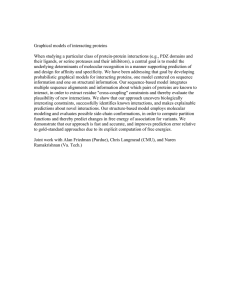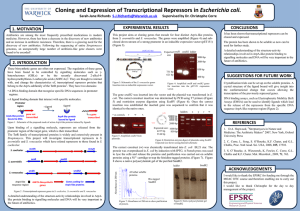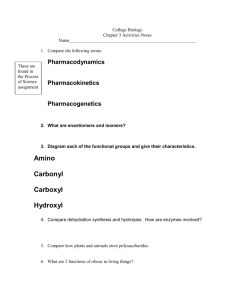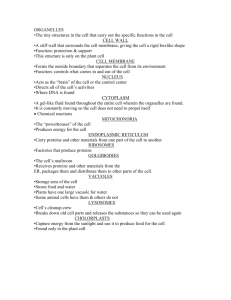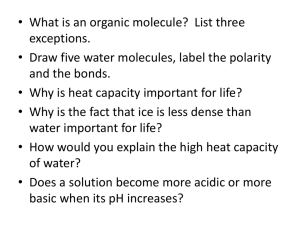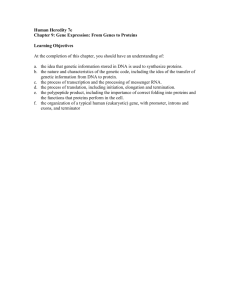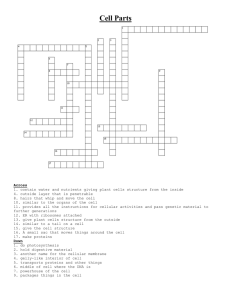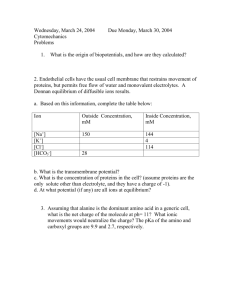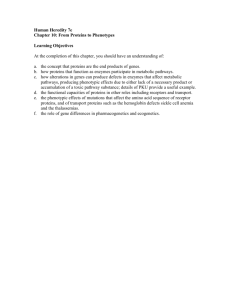Cloning and Expression of Transcriptional Repressors in Escherichia coli Sarah-Jane Richards
advertisement
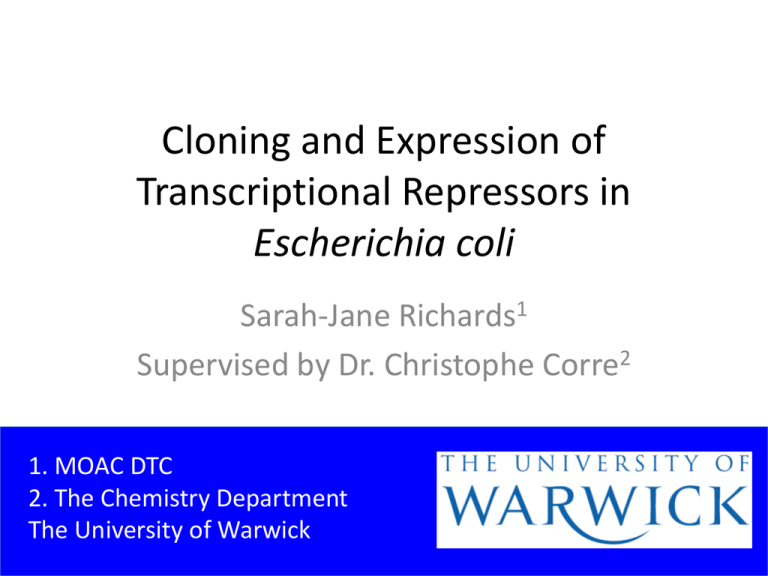
Cloning and Expression of Transcriptional Repressors in Escherichia coli Sarah-Jane Richards1 Supervised by Dr. Christophe Corre2 1. MOAC DTC 2. The Chemistry Department The University of Warwick The Problem Antibiotics • Decrease in number of antibiotics developed.1 • Increase in the resistance to antibiotic.2 1. Fischbach, M.A.; Walsh, C.T., Science, 2009, 325, 1089-1093 2. Barbosa, T. M; Levy, S.B, Drug Resistance Updates, 2003, 3, 303-311 Background Streptomyces • Produce over 70% of the antibiotics commercially available. • Following the sequencing of entire Streptomyces genomes, an unexpectedly large number of antibiotic-like gene clusters were found to be encoded. • These biosynthetic genes are often not expressed under laboratory culture conditions. 1. D.A. Hopwood, ‘Streptomyces in Nature and Medicine: The Antibiotic Markers’ 2007, New York, Oxford University Press. Previous Research Antibiotic Production Antibiotic production is tightly controlled and regulated by transcriptional repressors and signalling molecules.1 Promoter region gene not transcribed ArpA-like protein bound to DNA + Ligand Ligand ArpA-like protein bound to ligand 1. Corre, C.; Song, L.; O’Rourke, S.; Chater, K.F.; Challis, G. L. Proc. Natl Acad. Sci. USA., 2008, 105, 17510-17515 gene transcribed Previous Research Transcriptional Repressors • Consist of two domains: – DNA binding domain – Ligand binding domain • Signalling molecules1: • γ-butyrolactones (GBLs) • 2-alkyl-4-hydroxymethylfuran-3-carboxylic acids (AHFCAs) 1. O’Rourke, S.; Wietzorrek, A.; Fowler, K.; Corre, C.; Challis, G.L.; Chater, K.F., Mol Microbiol, 2009, 71, 763 Aim Biosynthetic gene clusters mmyR mmfR S. coelicolor S. avermitilis savR smdR savR2 smdR2 S. venezuelae ArpA-like response element Genes coding for ArpA-like proteins biosynthetic genes Aim Structural Elucidation • To contribute to understanding the molecular interactions of ArpA-like proteins. Homodimer of CprB, an ArpA homolog.1 1. Horinouchi, S., Biosci, Biotechnol., Biochem., 2007, 71, 2, 283-299 Approach Cloning and Expression Amplify Genes Insertion into expression vector Determine correct insertion Overexpression in E. coli Overproduction of proteins Purification of soluble proteins Approach Expression Vector T7 Promoter Histidine Tag smdR2 (620 bp) 200 400 600 CACC overhang and topoisomerase Ampicillin resistance gene Results Gene Amplification • S. venezulae • smdR 731 bp • smdR2 620 bp smdR smdR2 ladder 5000 bp 2000 bp 850 bp 400 bp Results S. avermitilis ladder savR savR2 • Amplification of savR and savR2 • From genomic DNA 5000 bp 2000 bp 850 bp 400 bp Results Amplification • Increase annealing temperature • Decrease DNA template ladder savR savR2 5000 bp 2000 bp 850 bp 400 bp Results Determining Correct Insertion T7 Primers • smdR2 smdR2 (620 bp) 200 +ve controls v w x 400 600 Results Determining Correct Insertion ladders x 10000 bp 5000 bp 4000 bp 2000 bp 1000 bp 850 bp y v w Results Sequencing 88% Good Poor Results Overproduction Transformation into E. coli BL21star Overnight culture of clone Scaled up culture Induced using IPTG Overproduction overnight Purification Results Purification Soluble proteins His-tagged proteins Imidazole Ni2+ cartridge All other proteins Ni2+ cartridge His-tagged proteins Results Purification All other proteins Absorbance at 280 nm His-tagged SmdR2 Washing Elution Conclusions Conclusion • Shown that transcriptional repressors can be cloned and expressed. • Due to being soluble, can now be used to further study. • A detailed understanding of the structureactivity relationships involved in ArpA-like protein binding to signalling molecules and DNA will be very important in the future of antibiotics. Future Work Still to do… • Determine insertion of smdR and savR2 • Transform plasmids with the correct insertion • Overproduce proteins • Purify soluble proteins Future Work Suggestion for Future Work • Electrophoretic Mobility Shift Assays (EMSA) • Co-crystallisation Acknowledgements • Dr. Christophe Corre • The Corre Group • The Challis Group • EPSRC • MOAC • And you for listening!
